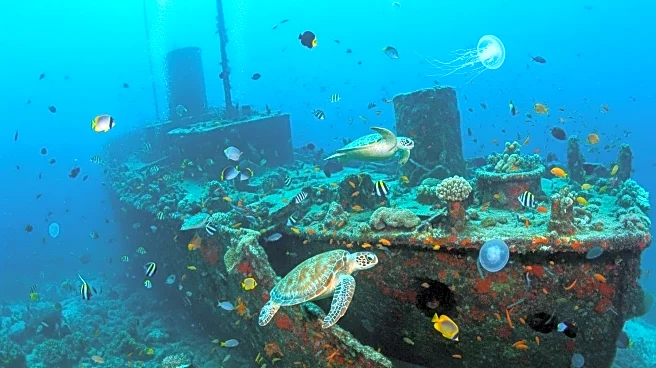What's Happening?
Researchers have discovered that sunken World War II munitions off the coast of Germany are providing habitat for marine life, despite the presence of toxic chemicals. The study found that sea creatures are thriving on the hard surfaces of the debris, which offer a preferable environment compared to the surrounding ocean floor. The findings suggest that some marine organisms can tolerate high levels of toxicity if there is a suitable habitat available.
Why It's Important?
The presence of marine life on toxic debris highlights the resilience of certain species and the adaptability of ecosystems. However, the long-term environmental impact of these toxic chemicals remains a concern, as they could affect marine biodiversity and health. The study suggests the need for removing the toxic debris and replacing it with non-toxic artificial surfaces to support marine life without the associated risks. This research contributes to the understanding of human-made ecosystems and the potential for remediation efforts.
Beyond the Headlines
The study raises ethical and environmental questions about the legacy of wartime activities and their impact on marine ecosystems. The resilience of marine life in toxic environments may offer insights into adaptation strategies, but it also underscores the importance of addressing pollution and habitat destruction. The findings could inform future conservation efforts and the development of sustainable practices for managing underwater debris.









